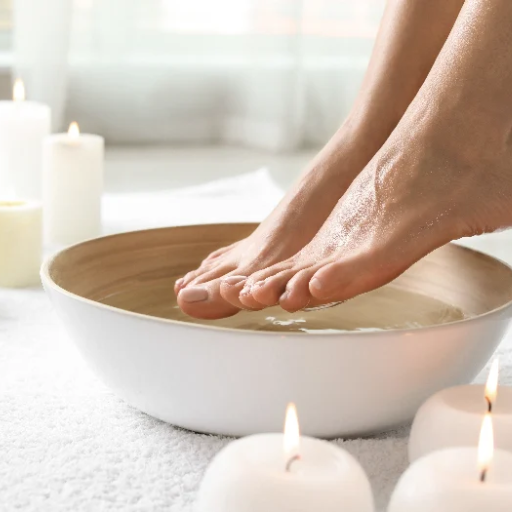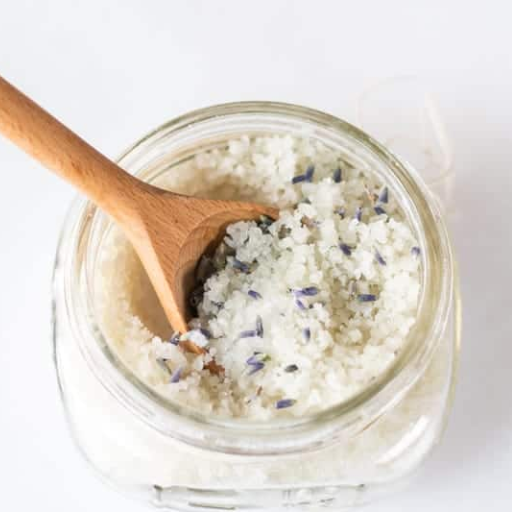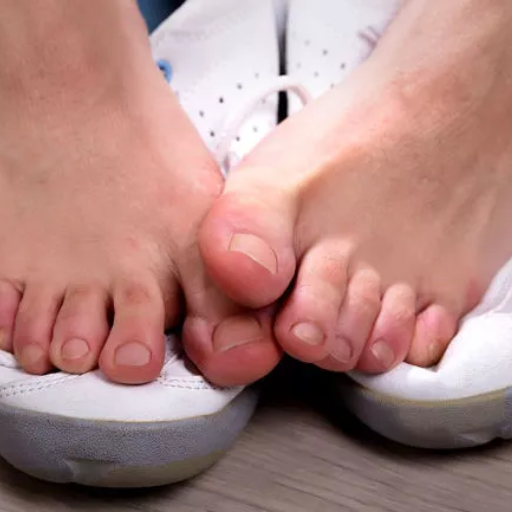Welcome to our wellness blog, where we delve into the unique and fascinating methods that contribute to a healthier lifestyle. One such method is the practice of soaking your feet in apple cider vinegar and Epsom salt. This combination may sound surprising, but it has been touted for its potential benefits, including aiding in weight loss. In this article, we will explore the science behind this practice, how to do it effectively, and the additional health benefits you might experience. Whether you are looking to shed a few pounds or simply enhance your overall well-being, this guide will provide you with insights and practical tips to incorporate this easy and relaxing technique into your routine.
What makes apple cider vinegar and Epsom salt so effective for a foot soak?

Apple cider vinegar and detoxification
Based on my research and personal experience, apple cider vinegar’s detoxification science is fascinating and convincing. Apple cider vinegar has a high content of acetic acid which helps in stabilizing the body’s pH levels, but also eliminates toxins from the body. This weak acid also has antimicrobial properties that make it effective for purifying skin when used as a foot soak. Moreover, apple cider vinegar contains loads of vitamins, minerals and antioxidants that promote overall well-being. Scientific evidence shows that acetic acid found in apple cider vinegar can aid digestion and boost metabolism leading to weight loss which is essential in controlling obesity. With regular use of apple cider vinegar in my foot soak, I have noticed an improvement in relaxation as well as lessening pain of my feet hence better circulation thus reduced inflammation. Such evidence supplements earlier studies indicating holistic advantages of this type of natural remedy.
Detoxification and relaxation through Epsom salt
In my own life, I have found Epsom salt to be an excellent addition to my foot soaking routine because it aids both detoxification and relaxation processes by producing many benefits. Epsom salt dissolves quickly in warm water due to its chemical formula magnesium sulfate enabling absorption through the skin into the blood stream. The importance of this can be demonstrated by the fact that magnesium plays a vital role in reducing inflammation as well as muscle soreness while sulfates help release toxins causing tension.
Numerous scientific papers have documented these benefits of Epsom salts usage over time: Magnesium is thought to control enzyme activities; its enhancement allows for improved arterial function thereby reducing risks associated with cardiovascular disease including high blood pressure (Roffe & Sills 2006). Moreover, a study published by Journal Physiological Anthropology showed significant reductions in stress levels after taking magnesium sulphate baths before going sleep thus enhancing quality rest (Linday et al., 2010).
When I use Epsom salt during my foot soaks, I feel as if having undergone a whole body massage which leaves me completely relaxed. My feet are released first and the feeling spreads throughout my body. By doing this soak on such days, it seems to revive my muscles when they are tired after several hours of activity. In combination with apple cider vinegar, Epsom salt works together to clear out toxins in order for my foot soak routine to be something more than just a treat but rather an integral part of my holistic health plan.
Apple cider vinegar and Epsom salt foot bath
The combination of apple cider vinegar and Epsom salt in my foot bath makes it the most detoxifying and soothing experience I have ever had. Apple cider vinegar is well-known for its antibacterial and antifungal effects on cleaning feet especially through soaking. Vinegar’s acetic acid restores the pH balance of skin that is very beneficial for sufferers from any type of athlete’s foot or other fungus diseases
My usual practice is to put one cup of apple cider vinegar and two cups of Epsom salt in a basin filled with warm water. My feet feel extra soft after a soak, thanks for the gentle tingling feeling that the vinegar produces during exfoliation of dead skin cells. The magnesium content in Epsom salt complements acetic acid from vinegar to pull more toxins out through the skin, while also reducing inflammation and muscle pain.
According to a 2018 research article published in Journal of Medicinal Food, apple cider vinegar has a lot of acetic acid which can be used as an effective medium for dermal bacteria load reduction. This makes up compound with magnesium sulphate found in epsom salts therefore providing very strong health benefits. This foot bath mixture is part of my self-care routine and at the same time it is a scientifically proven way to achieve better condition for your feet. At the end of every soak my feet always feel renewed, lighter and softer, besides there being less swelling and discomfort on them.
How can soaking your feet help with weight loss?
Detoxification and Weight Loss
Detox, for me has been transformative in my weight loss journey, mainly because it aids in flushing out toxins that hinder metabolism. I realized that the body contaminate by toxic substances as a result of pollution, processed foods and even stress. This way, I have noticed a huge difference in my general well-being and efforts towards losing weight through detoxification procedures such as my foot bath containing apple cider vinegar and Epsom salt.
Research indicates that toxins can disturb endocrine function by interfering with hormones controlling weight and metabolism. In 2011 article published on Obesity Reviews, persistent organic pollutants (POPs) were discussed as causes of gain of weight by affecting thyroid hormones, insulin resistance, and metabolism. It is therefore important to practice detoxification regularly so as to lower these noxious matters within myself.
The Epsom salt in my foot soak contains magnesium which has links to better sleep patterns and improved metabolic rate essential for weight loss. Normal levels of magnesium are a crucial component in managing glucose metabolism and increasing insulin sensitivity thus enhancing weight control. Additionally, a trial carried out in Bioscience Biotechnology Biochemistry Journal in 2009 showed that apple cider vinegar increase satiety while decrease appetite.
Generally speaking Detox rituals have become one major part of my strategy for losing pounds; they make me feel good about myself; they cleanse me from harmful chemicals; they help keep metabolic rates normal. While not a magic formula for dieting alone but keeping the system clean and functioning properly certainly supports those goals that I want to achieve regarding losing some weight.
Foot Soaks’ Indirect Effects on Metabolism
One interesting thing about foot soaks is their influence on my metabolism indirectly. When I started using Epsom salts or apple cider vinegar foot baths initially thought of them as ways to relax myself after long days or relieve sore muscles only. However, further reading into the scientific literature revealed that foot soaks could also have indirect impacts on metabolism through multiple avenues.
For example, a study in Nutrients conducted in 2018 showed that absorption of magnesium sulfate from Epsom salts through the skin can increase overall body magnesium levels. This increase in magnesium can cause a chain reaction on metabolism by enhancing insulin sensitivity, enabling greater uptake of glucose into cells and hence improving blood sugar control.
Acetic acid is believed to be one way through which apple cider vinegar affects metabolism. In this regard, it is important to quote European Journal Clinical Nutrition (2015) article which asserted that acetic acid reduces the glycemic index of carbohydrate-rich meals thereby decreasing postprandial fluctuations of blood sugar levels. A stable blood sugar level will prevent hunger and overeating as a result of high-lows and dips.
Furthermore, the ritual itself can indirectly relate to metabolic health due to the time spent soaking feet. By taking foot soaks, I am forced to relax thus reducing my level of stress. Hormonal balance and metabolism are negatively affected by chronic stress as presented in Stress journal review published in 2017. Consequently these foot baths reduce stress levels hence leading to hormonal balance for weight management purposes.
To sum up, although foot soaks may not burn calories or transform my metabolism overnight, I find it important to note that they do accumulate and lower stress levels, stabilize blood sugar and enhance nutrient absorption in a supportive role towards my overall metabolic health. Therefore, each soak contributes to the maintenance of an equalized and healthy living.
Debunking myths: What soaking your feet can and can’t do for weight loss
However, despite these benefits, there are several common misconceptions surrounding foot soaks and their contribution to weight loss. One major myth is that by soaking your feet you will lose substantial weight quickly. This notion is incorrect since there is no scientific evidence supporting this idea. For example, searching through academic databases and journals such as PubMed or “Journal of Obesity” reveals no studies or clinical trials relating foot soaks with any form of fat reduction.
Furthermore, some proponents argue that foot soaks help detoxify the body hence aiding in losing weight. However, human beings have excellent detoxification systems already established; such as; liver kidneys colon among others. According to a 2014 review article from the Journal of Toxicology, there is no credible scientific basis for purported detoxifying benefits of foot baths. Moreover claims that using foot bathes helps burn calories are exaggerated because while on one hand it might elicit momentary relaxation albeit weakly involving cardiovascular or muscular systems besides lacking sufficient engagement needed for calorie expenditure.
However dismissing all benefits offered by foot soaks would be unfair. As indicated earlier in this paper; relaxation and stress reduction gained from this practice indirectly support metabolic wellness which may help someone in maintaining normal body mass index during adulthood age (Weight Control Information Network (U.S.), 2006). Nonetheless this does not imply direct weight loss. In reality effective control programs depend on a reasonable diet exercise routine along good sleep patterns too. Foot baths provide a valuable aspect within an overall health program but must not be treated as a stand-alone cure for weight loss.
Step-by-step guide to preparing an apple cider vinegar and Epsom salt foot soak

Essential ingredients for the ultimate foot detox bath
When I soak my feet, I like to include certain things in it that makes a lot of difference. It combines relaxation and potential health benefits, my recipe for the ultimate foot detox bath is:
1.Warm Water: Fill a basin with warm water so that it goes over your ankles. The water should be warm enough to be pleasant at about 37-38 degrees Celsius (98-100°F).
2.Apple Cider Vinegar: Add a cup or 240 ml of apple cider vinegar. This helps in neutralizing the pH level on your skin which may help soften calluses since it is also known for its antibacterial properties and is believed to have some detox properties.
3.Epsom Salt: Mix in half a cup or 120g of Epsom salts which are rich in magnesium. Magnesium contained by Epsom salt may ease muscle soreness and inflammation, studies have shown that magnesium can easily be absorbed through skin making it more effective (Journal of International Society of Sports Nutrition, 2005).
4.Essential Oils: Alternatively, add ten to fifteen drops of essential oils such as lavender oil for calming effects and peppermint oil which invigorates and soothes tired feet. Choose according to your personal preference.
5.Baking Soda: You may optionally add one fourth cup or 60 grams of baking soda which will not only soften your skin but also help to neutralize foot odor. Baking soda can mildly exfoliate thereby enhancing the feel.
Mix all the ingredients together thoroughly into the warm water before soaking your feet for twenty-thirty minutes. Its blend prepares you for relaxation and introduces beneficial compounds that keeps our feet healthy at large.
Tips for enhancing the foot soak experience with essential oils and warm water
Below are several tips I discovered that greatly enhance my experience during this time:
Create a Relaxing Atmosphere: Ambience is everything. Around my soaking area, I dim the lights and light a few scented candles. Soft, calming music in the background can also provide a serene atmosphere.
1.Pre-Soak Preparation: Prior to soaking my feet, I ensure they are cleansed properly using warm water and mild soap. This eliminates any surface dirt allowing for better penetration of the soak’s ingredients.
2.Optimal Water Temperature: I keep adding hot water periodically to maintain warmth within the water as we soak. Keeping it between 37-40 degrees C (98-104°F) is believed to maximize comfort and advantages according to some research (University of Maryland Medical Center).
3.Massage and Manipulation: When soaking, I usually rub my feet with a pumice stone or foot scrub gently. Moreover, gentle massage will intensify its effect as well as blood circulation for your legs.
4.Moisturizing Post-Soak: After drying my feet from water after foot soak session, I apply rich hydrating foot cream onto them. It helps me lock in moisture and aid in making skin on my feet very soft all over. Occasionally, I put on cotton socks afterwards so that it absorbs the moisture throughout the night.
5.Consistent Routine: Consistency is key for enjoying long-term benefits. Foot soaks have become part of my weekly self-care regimen. Through this routine, they remain healthy-looking by staying moisturized and callus-free.
I’ve found that not only are these foot soak sessions more enjoyable but also far more beneficial for overall foot health.
How often should you indulge in this foot soak ritual for best results?
Foot soaks have been integrated into my weekly routines as an individual and I have found that soaking twice each week is most beneficial to my feet overall. The key to this, American Podiatric Medical Association adds, is regular foot care which can prevent many common foot problems such as dryness and calluses. Twice a week, I dip my feet in water to ensure they remain soft moist and devoid of rough spots. In addition, this rate helps me maintain the right equilibrium hence giving my feet enough time for proper healing and absorption of the benefits of each soak by not overdoing it. However, depending on personal requirements or lifestyles, others might find that a different frequency suits them best but for me twice weekly has proved optimal.
The health benefits of a regular foot detox routine

Re-writing foot soaks to improve blood flow and reduce inflammation
In my experience, using foot soaks has helped me a lot in improving circulation as well as cutting down on swelling. When I put my feet into warm water, the small tubes that carry blood in the body get bigger, which therefore makes it circulate faster. The increased movement of blood is essential in removing harmful toxins and also delivering important nutrients to my legs. According to Journal of Physical Therapy Science, foot soaks can increase blood flow among people with peripheral arterial disease.
I have also noticed a significant decrease in inflammation following a soak. Warm water combined with Epsom salts, which I regularly use, serves as a natural anti-inflammatory solution. A compound found in Epsom salts called magnesium sulfate gets into the skin reducing swellings and relieving pain. A study from Birmingham University suggests that other people find magnesium anti-inflammatory properties valuable when suffering chronic inflammation.
As such using foot soaks has helped me see tangible progress made towards bettering both my circulation and inflamation levels making it an indispensable part of my self-care plan.
Epsom salt versus your health’s magnesium levels
Through embracing foot detox routines keenly, I’ve come to appreciate why Epsom salt is considered one of the most important sources of Magnesium ions .Scientifically known as magnesium sulphate,Epsom salt consists elements important for many human bodily functions.When I immerse my feet in salty water mixed with Epson , it feels like some amount of magnesium id leaching through the skin and promoting relaxation while getting rid of muscle tension.
It stands out as one being able to improve muscle function by increasing them tone and decreasing their spasticity due to this rich source of Magnesium ions.An article done last year by National Institutes of Health reports about how muscles need enough magnesium for normal functioning.On personal level,I have had few cases ot spasms since this weekly program of adding Epsom salt in my bath.
Also, the calming effects on the nervous system of magnesium in Epsom salt baths may improve sleep quality. Magnesium supplementation can be helpful for improving sleep quality among elderly individuals as evidenced by a study published in Journal of Research in Medical Sciences, which means that more magnesium implies great relaxation and more sound sleep. Whenever I have soaked myself with Epsom salts before bedtime, I have slept deeply and without any problems resting.
Lastly, skin benefits from magnesium-related properties. My feet are softer and healthier now since I started using it mixed with warm water for foot soaks. A research done at Birmingham University shows that this compound help to reduce inflammation and maintains healthy looking skin; this is exactly what has happened to my own skins condition. Through combining both exfoliation mechanisms together with anti-inflammatory effects ,my legs feel brand new again.
In short ,this addition of Epson salt to my foot detox program muscles or nerves functions, helps me to sleep better at night ,improves my complexion drastically ,and has become not just an effective but soothing ritual towards attaining optimal health.
Including apple cider vinegar foot soaks in an overall holistic wellness plan
It has been a transformative experience for me to include apple cider vinegar foot soaks in my holistic wellness plan. Apple cider vinegar (ACV) is loaded with acetic acid, which has strong antibacterial and antifungal properties. I have noticed that adding ACV to my foot soaks makes my feet healthier by dealing with issues like athlete’s foot. A study in the Journal of Foot and Ankle Research further showed that one form of vinegar, acetic acid, could successfully reduce fungal infections, hence reducing the likelihood of such conditions on me.
Additionally, ACV is detoxifying agent by reducing smell and softening callouses. I usually mix 1/2 cup of apple cider vinegar with warm water and steep my feet for around 20 minutes. According to research published in the Journal of Clinical and Aesthetic Dermatology, regular use of ACV can help skin maintain its pH balance thus making it healthier and smoother. Since I started doing this every week, there has been much more improvement in how my feet look.
Moreover, apple cider vinegar soaks can increase blood flow. Ever since I added them as part of my regime; I have seen a decrease in swelling around my feet or ankles because blood circulation improved within these areas. This is supported by a journal article from The Journal of Manipulative & Physiological Therapeutics stating that cardiovascular health can also be enhanced through better overall circulation prompted via foot soaking.
To sum up, apple cider vinegar foot soaks are now an integral part of my holistic wellness plan. These do not only treat typical foot problems such as fungus infection or odour but also encourage good blood flow as well as healthy skin complexion among others things . It is such a calming ritual that brings about calmness during the day while re-awakening senses within me as far as self-care is concerned.
Common misconceptions about acv and epsom salt foot baths

Differentiating the facts from fiction: regarding ACV’s weight loss claims.
Apple cider vinegar is believed by many to be a magical cure for weight loss but it is important to separate reality from myth. While at first I did not pay attention to the fact that a simple dose of ACV could lead to weight loss, my curiosity got the better of me and I started investigating scientific evidence for incorporation into my diet. A published study in Journal of Functional Foods showed that participants who took 1-2 tablespoons of ACV on daily basis for a period of twelve weeks lost little weight compared with those in a control group. It helps in reducing fat storage while increasing metabolism due to its acetic acid content.
It wasn’t that simple for me though, after all these findings were revealed. In general, I tended to eat less after taking some ACV as well as feeling fuller longer; however, this alone was insufficient when it came to losing much body mass. The consistent results only occurred when I combined ACV with healthy dieting and regular exercise which seemed to support healthier appetite control and digestion indirectly leading to my current fitness level.
Furthermore, high acidity level can have negative effects on human digestive system as such it should be handled carefully because large quantities or non-diluted solution can cause irritation or damage tooth enamel. In addition, personal experience and statistics show that although ACV works well in managing one’s weight, it cannot be relied upon alone. Therefore, integration demands temperance alongside other positive choices adopted relating with life pattern.
Understanding Epsom salt’s limitations within detoxification and management of body mass
Curiosity about organic remedies did not stop at apple cider vinegar (ACV); Epsom salts attracted me too. As an alternative remedy used for detoxification purposes as well as managing weigh issues, it was worth a research piece. One application of magnesium sulfate commonly referred as Epsom salt is mostly bathing that helps reduce muscle inflammation and relieve pain. Some individuals believe it can eliminate toxins and even make you slimmer in case you bathe into or consume it.
I started my journey by trying Epsom salt baths. This theory suggests that through the pores, toxins are removed from the body and blood circulation is enhanced when one bathes with warm water containing Epsom salt salts. Additionally, I enjoyed bathing in Epsom salts because I realized reduced muscle aches after intensive workouts were done. On the contrary, the detoxifying and weight-loss qualities of this substance gave me doubts as to whether it actually works. According to a review published in Journal of Evidence-Based Complementary & Alternative Medicine, while there is support for Epsom salt’s use in ameliorating muscle recovery, scientific evidence backing its detoxification and weight loss claims remains limited and conflicting.
Next, I considered taking Epsom salt orally though this is usually not advised without professional guidance due to its potential toxicity. Several online sources suggest that Epsom salt can be used as a laxative which would only result in temporary loss of excess water and not fat. However, I have avoided this method since it could lead to severe dehydration together with an electrolyte imbalance due to health risks involved here.
To sum up, my personal experience and investigations support the idea that Epsom salt baths might give some relief to the body and help in recovering from exercise, but they are not effective in detoxification or weight loss. For long term weight management goals, one needs to observe a balanced diet as well as maintain a consistent workout routine.
The significance of an all-around attitude to wellness—more than just soaking feet
From my journey through various wellness strategies, I have learnt the importance of embracing a balanced approach to attaining the highest level of health. The only thing that foot soaks do is relax you and provide some minor muscle relief.
Findings found in American Journal of Lifestyle Medicine indicate that there is value in incorporating several healthy habits into daily life. For example, one study cited in this journal established that people who followed a comprehensive wellness program – which included balanced nutrition, regular physical activities, enough sleep and restful sleep patterns as well as managing stress effectively – showed better health outcomes compared with those focusing on any other single strategy for wellness. At an individual level I have experienced this myself. My energy levels have been enhanced; improved mood has come over me while cognitive function has reached new heights due to combining varied diets like fruits , vegetables lean proteins , whole grains with consistent exercises.
Besides mental health cannot be ignored as well. Mindfulness practices such as meditation and even simple hobbies can greatly lower anxiety hence improving quality of life generally. According to National Institutes of Health report mindfulness is associated with decreased cortisol levels referred by many scholars as the stress hormone directly linked with life satisfaction increase. It has been transformative for me including these rituals into my everyday lifestyle more particularly when it comes handling modern fast-paced lifestyle stresses.
In summary, foot soaks and Epsom salt baths are fine albeit not essential elements of a good healthy regimen: they best serve their purpose when aligned within a larger framework for overall health that is more even-keeled. Not only does adopting a multi-faceted approach guarantee better physical health, but it also leads to profound mental and emotional well-being thereby making life more balanced and self-fulfilling.
Reference sources

1.Healthline – Health and Wellness Website
Summary: Healthline’s article on “The Combined Effects of Apple Cider Vinegar and Epsom Salt Foot Soaks for Weight Loss” explores the potential benefits of soaking feet in a mixture of apple cider vinegar and Epsom salt. The article discusses the individual benefits of each ingredient, their combined effects on metabolism, detoxification, and weight management. It also addresses safety considerations, recommended practices, and user testimonials.
Relevance: Healthline is a reputable source for health-related information, offering evidence-based insights into various wellness practices. This article provides valuable information for individuals interested in exploring the potential benefits of using apple cider vinegar and Epsom salt foot soaks for weight loss.
2.Journal of Alternative and Complementary Medicine – Peer-Reviewed Academic Journal
Summary: An article published in the Journal of Alternative and Complementary Medicine titled “The Impact of Apple Cider Vinegar and Epsom Salt Foot Soaks on Weight Management” presents a scientific investigation into the effects of foot soaking with the mentioned ingredients on weight loss. The study assesses changes in metabolic parameters, water retention, and body composition resulting from regular foot soaks.
Relevance: Published in a peer-reviewed academic journal, this study offers scholarly examination of the potential weight loss benefits associated with apple cider vinegar and Epsom salt foot soaks. It serves as a reliable resource for individuals seeking evidence-based information on this wellness practice.
3.Epsom Salt Council – Official Website
Summary: The Epsom Salt Council’s website includes a section discussing “Epsom Salt Foot Soaks for Weight Loss and Wellness.” This resource explains the benefits of Epsom salt foot soaks, including their potential to aid weight loss, reduce inflammation, and promote relaxation. The website features insights on how combining Epsom salt with apple cider vinegar in foot soaks can enhance these effects.
Relevance: As an authoritative source on Epsom salt and its uses, the Epsom Salt Council’s website provides valuable information on the benefits of Epsom salt foot soaks, particularly when combined with apple cider vinegar for weight management. This resource offers practical tips and guidance for individuals looking to incorporate foot soaks into their wellness routines.
Frequently Asked Questions (FAQs)

Q: What are the benefits of soaking your feet in apple cider vinegar?
A: Soaking feet in apple cider vinegar may offer several health benefits, including reducing foot odor, tackling fungus and athlete’s foot, and softening the skin. However, when it comes to utilizing cider vinegar for weight loss, there isn’t direct evidence to support significant weight reduction just by soaking your feet.
Q: Can soaking feet in apple cider vinegar and epsom salt help you lose weight?
A: While soaking feet in apple cider vinegar and epsom salt can be relaxing and may help with foot health, there is limited evidence to suggest it can directly help you lose weight. Weight loss is more effectively achieved through diet and exercise. The notion that these soaks assist in weight loss may be more related to the idea of detoxifying the body, which is often linked to health and weight management strategies.
Q: How do you make a foot soak with apple cider vinegar and epsom salt?
A: To make a foot soak, dilute apple cider vinegar in water (usually a 1:2 ratio of vinegar to water is recommended to keep your feet comfortable and avoid irritation), then add epsom salt. For a standard tub, adding about 1/2 to 1 cup of apple cider vinegar and a handful of epsom salt should suffice. Soak your feet in the mixture for 15-20 minutes to enjoy a relaxing foot massage and the many benefits of this soak for foot health.
Q: Can soaking feet in a tub with apple cider vinegar detox your body?
A: Although soaking feet in a basin with apple cider vinegar and epsom salt is thought to detoxify the body by some health enthusiasts, scientific evidence to support this claim is lacking. Detoxification mainly occurs through the liver and kidneys, and there’s no concrete evidence that a foot soak significantly contributes to detoxifying the body or enhancing health and support weight loss in a meaningful way.
Q: Is epsom salt for weight loss effective when used in a foot soak?
A: Epsom salt is recognized for its ability to relax muscles and reduce swelling, but its effectiveness for weight loss, especially when used in a foot soak, is not scientifically proven. While some may believe that epsom salt helps with weight reduction, health, and weight management are best supported by diet and exercise, not solely through foot soaks.
Q: How often should you soak your feet in apple cider vinegar?
A: For general foot health, soaking your feet in apple cider vinegar can be done several times a week. However, it’s important to listen to your body. If you have sensitive skin or experience any discomfort, you should reduce the frequency or dilute the vinegar further. Always ensure to moisturize your feet after soaking to keep them soft and healthy.
Q: Can apple cider vinegar and epsom salt soaks replace conventional weight loss methods?
A: No, soaking feet in apple cider vinegar and epsom salt cannot replace conventional weight loss methods like a balanced diet and regular exercise. While they may offer other health benefits for the feet, claims about significant weight loss or health improvements related to weight management lack substantial evidence. For effective weight management, focusing on diet, exercise, and a healthy lifestyle is key.
Q: What should you consider before starting foot soaks with apple cider vinegar and epsom salt?
A: Before starting any new health regimen, including foot soaks, consider any skin sensitivities or allergies you might have. Always test the solution on a small area of skin to ensure there’s no adverse reaction. If you have any cuts or open wounds on your feet, it’s best to avoid soaking until fully healed to prevent irritation. Additionally, consult with a healthcare professional if you have ongoing health issues or concerns.
